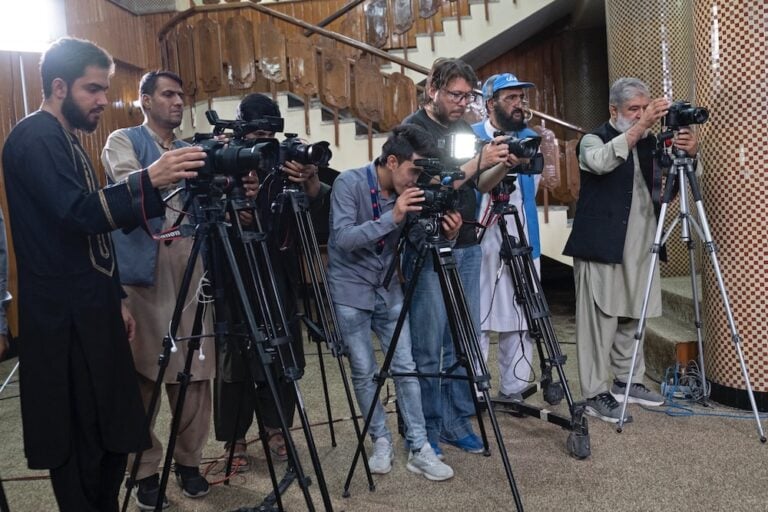Considering the worst-case scenarios for post-2014 Afghanistan, international news agencies should start planning a range of assistance responses for locally hired journalists and media staff.
The following is a CPJ Blog post by Bob Dietz/CPJ Asia Program Coordinator:
Considering the worst-case scenarios for post-2014 Afghanistan, international news agencies should start planning a range of assistance responses for locally hired journalists and media staff. By the end of 2014 NATO troops will have largely withdrawn and the Karzai government will make way for a new administration. If the situation becomes chaotic, Afghans working for foreign and local media could become targets for retribution for their work as journalists.
A similar discussion has already started in Western media about the future of Afghan interpreters who have served foreign governments and militaries. They may find their lives at risk once the dynamics on the ground change. (Here’s the New York Times’ piece from Monday 15 April 2013, and a post by George Packer for the New Yorker. Der Spiegel’s story is here. Sweden’s government is considering offering all its Afghan staff asylum.) Some suggest Afghanistan could become as chaotic as Iraq as the U.S.-led war wound down.
Read the full story on CPJ’s website.


